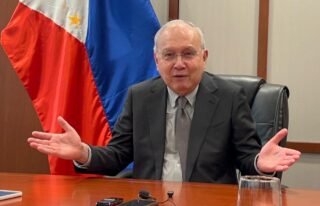MANILA, Philippines—Auto parts manufacturers have warned the government that a further delay in the release of the proposed automotive roadmap will deter the entry of new vehicle assembly and parts production investments into the country, amid a market where imports are increasingly slashing the share of locally manufactured units.
“Numerous well-studied drafts have been crafted, submitted to and refined by the Philippine Institute for Development Studies (PIDS) and the Board of Investments (BOI) during the last two years. And yet, the BOI’s target release of the roadmap on the first quarter of 2014 has come and gone. The industry is now growing impatient,” Motor Vehicle Parts Manufacturers Association of the Philippines Inc. (MVPMAP) president Ferdinand I. Raquelsantos pointed out in a statement over the weekend.
While local vehicle sales have been increasing during the past few years, this has not redounded to domestic assemblers, as the share of imported vehicles has also grown vis-à-vis units assembled in the country.
An industry source told the Inquirer that of the over 210,000 vehicles sold in 2013, only 38 percent were assembled here, while the rest were imported mainly from Japan, South Korea and Thailand. Last year’s share of locally assembled units was lower than the 41 percent it had in 2012.
The low tariff being slapped on vehicles from within Asean and free trade partners like Japan has made it cheaper to just import completely built-up (CBU) units than assemble completely knocked down (CKD) components. For instance, American carmaker Ford last year pulled the plug on its Philippine manufacturing operations and instead made Thailand—considered Asean’s Detroit—its production base in the region.
In Asean, the Philippines lags behind Thailand, Indonesia, Malaysia and even Vietnam in automotive output.
It does not help that “some major investments have been put on hold pending the issuance of the roadmap,” according to MVPMAP.
“Investors want to see first what is in store for them in terms of fiscal and nonfiscal incentives before they pour in additional investments. The continued delay will not be good for us. We might lose this opportunity again and miss the boat again,” Raquelsantos explained.
The industry executive cited that, during the recent Electric Vehicle Summit, foreign investors as well as their local partners said that they were “tentative in their decisions to invest in manufacturing facilities for electric vehicles in the country.”
“Just like them, we also want car assemblers to locally assemble more of their products here rather than bring them in in CBU form. There are no value-added contents in terms of labor and materials in CBU importation. But no investment decisions are being made right now until the car assemblers and other potential foreign investors have seen the roadmap and determined the economic feasibility of local car assembly,” he said.


